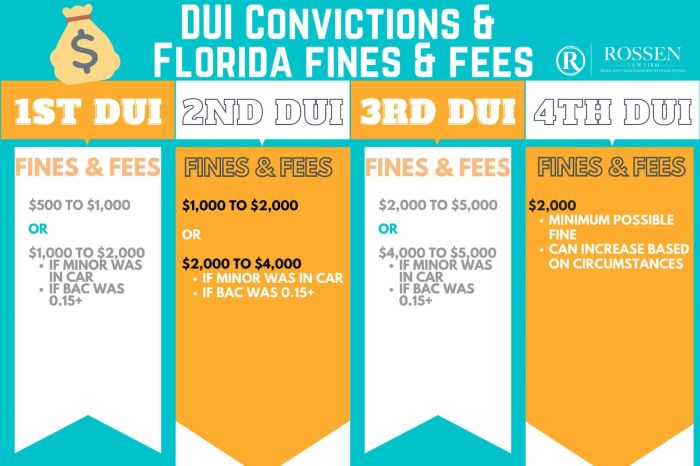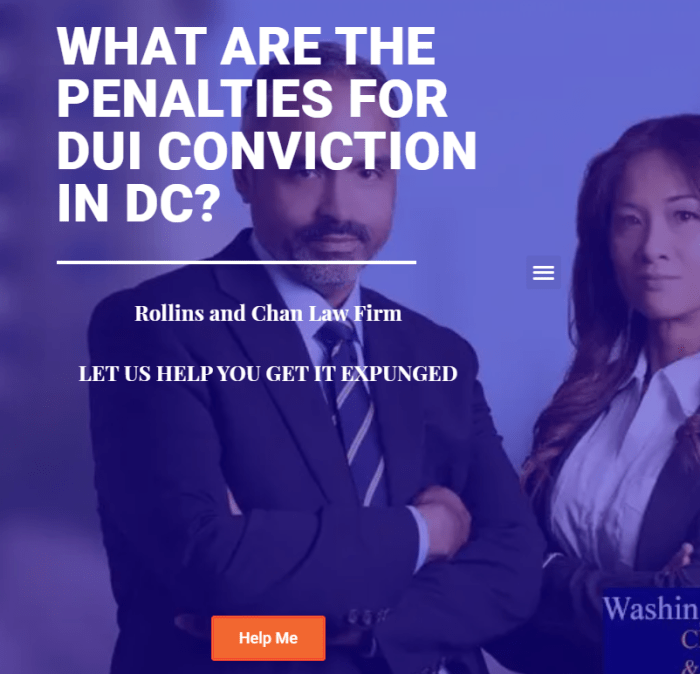Pena por la primera convicción por dui en florida – Navigating the complexities of Florida’s DUI laws can be daunting, especially for first-time offenders. This comprehensive guide provides a detailed overview of the penalties, legal procedures, and potential consequences associated with a first-time DUI conviction in the state, empowering individuals to make informed decisions and mitigate the impact on their lives.
Understanding the legal framework surrounding DUI offenses is crucial. Florida has strict penalties in place to deter drunk driving and protect public safety. This guide will delve into the specific consequences individuals may face, including fines, license suspensions, and potential jail time, ensuring readers are fully aware of the ramifications of driving under the influence.
Penalties for First-Time DUI Convictions in Florida

In Florida, a first-time DUI conviction carries significant legal consequences, including fines, license suspension, and potential jail time. The penalties vary depending on the blood alcohol content (BAC) level at the time of arrest.
For a BAC level of 0.08% or higher, the penalties include:
- Fines ranging from $500 to $1,000
- License suspension for six months
- Potential jail time of up to six months
For a BAC level of 0.15% or higher, the penalties increase to:
- Fines ranging from $1,000 to $2,000
- License suspension for one year
- Potential jail time of up to nine months
Legal Procedures and Sentencing Guidelines

When an individual is arrested for DUI in Florida, they will be taken to the police station for booking and processing. The arresting officer will typically administer a breathalyzer test to determine the BAC level.
If the BAC level is 0.08% or higher, the individual will be charged with DUI. The court will then determine the sentencing guidelines based on factors such as the BAC level, prior criminal history, and mitigating circumstances.
Impact on Insurance and Employment: Pena Por La Primera Convicción Por Dui En Florida
A first-time DUI conviction can have a significant impact on insurance premiums. Many insurance companies will increase rates for drivers who have been convicted of DUI.
In addition, a DUI conviction can also affect employment opportunities. Some employers may be hesitant to hire individuals who have been convicted of DUI, especially for jobs that involve driving.
Mitigation and Defense Strategies

There are several strategies that can be used to mitigate the penalties of a first-time DUI conviction. These strategies include:
- Enrolling in alcohol education programs
- Seeking legal representation
Common defense strategies used by attorneys in DUI cases include:
- Challenging the BAC test results
- Arguing for leniency
Rehabilitation and Support Programs

There are a number of rehabilitation and support programs available to first-time DUI offenders in Florida. These programs are designed to help offenders understand the consequences of their actions and to develop strategies to avoid future DUI convictions.
The goals of these programs include:
- Reducing recidivism
- Promoting responsible driving habits
Clarifying Questions
What are the penalties for a first-time DUI conviction in Florida?
Penalties vary depending on blood alcohol content (BAC) levels and prior offenses, but typically include fines, license suspension, and potential jail time.
What are the legal procedures involved in a first-time DUI case?
Procedures include arrest, booking, arraignment, trial or plea, and sentencing, with the court considering factors such as BAC level and criminal history.
How can I mitigate the penalties of a first-time DUI conviction?
Mitigation strategies include enrolling in alcohol education programs, seeking legal representation, and demonstrating remorse and a commitment to responsible driving.